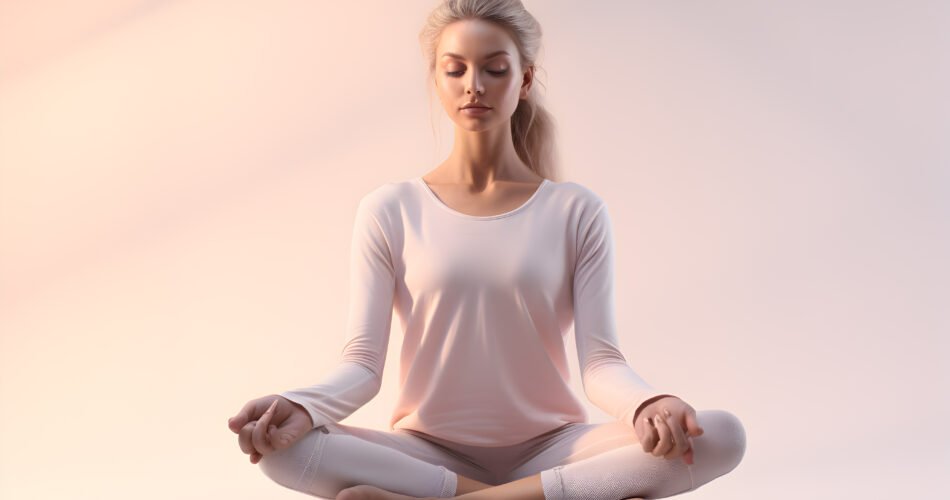Are you overwhelmed by the constant busyness of life? Do your thoughts race from one worry to the next, making it hard to focus on the present? You’re not alone. In today’s fast-paced world, it’s easy to get caught up in the mental whirlwind, leaving us stressed, anxious, and disconnected.
This is where mindfulness comes in. Often described as “paying attention on purpose,” mindfulness is a powerful tool for cultivating inner peace, improving focus, and enhancing your overall well-being.
This beginner-friendly guide will unveil the core principles of mindfulness, explore its numerous benefits, and equip you with practical techniques to seamlessly incorporate this practice into your daily life.
Demystifying Mindfulness: What Exactly Is It?
Imagine yourself sitting by a babbling brook. You hear the gentle gurgling of the water, feel the warmth of the sun on your skin, and smell the crisp scent of pine trees in the air. This present-moment awareness, free from judgment and focused on sensory experience, is the essence of mindfulness.
Here’s what mindfulness entails:
- Living in the Now: Mindfulness encourages you to anchor yourself in the present moment. Instead of dwelling on the past or fretting about the future, you learn to appreciate the sights, sounds, smells, and sensations happening right now.
- Non-judgmental Awareness: It’s not about criticizing yourself or your thoughts. It’s about observing them with curiosity and acceptance. Just as you wouldn’t judge the clouds passing by in the sky, you learn to observe your thoughts without getting attached to them.
- Openness to Experience: Mindfulness cultivates an openness to whatever arises in your mind and body. Whether it’s a joyful thought, a wave of anxiety, or a physical discomfort, you learn to acknowledge it without judgment and allow it to pass.
Why is Mindfulness So Popular?
Mindfulness has skyrocketed in popularity for good reasons. Here are some tangible benefits it offers:
- Reduced Stress: Overwhelmed by deadlines and daily pressures? Mindfulness can be your stress-busting superpower. By learning to observe and detach from stressful thoughts and anxieties, you can find greater inner calm and reduce the impact of stress on your life.
- Improved Mental Health: Studies show that mindfulness is effective in mitigating symptoms of depression, anxiety, and other mental health conditions. It fosters self-compassion, acceptance, and helps develop healthier coping mechanisms for emotional challenges.
- Enhanced Focus and Concentration: Does your mind constantly jump from one task to the next? Mindfulness trains your brain to be less reactive to distractions. By cultivating present-moment awareness, you can improve your ability to focus on the task at hand and avoid getting overwhelmed.
- Greater Self-Awareness: Through mindfulness practice, you gain a deeper understanding of your thoughts, emotions, and behavioral patterns. This self-awareness allows you to make conscious choices and respond to situations more effectively.
- Boosted Physical Health: Research suggests that mindfulness can positively impact physical health by lowering blood pressure, improving sleep quality, and strengthening the immune system.
Your Path to Mindfulness: Simple Techniques to Start Your Journey
The beauty of mindfulness lies in its simplicity. There’s no need for expensive equipment or complicated rituals. Here are some beginner-friendly techniques to get you started:
- Mindful Breathing: This is the cornerstone of mindfulness practice. Find a quiet place, sit comfortably, and focus on your breath. Notice the sensation of your breath entering and leaving your nostrils. When your mind wanders (it will!), gently bring your attention back to your breath. Start with just a few minutes of mindful breathing daily and gradually increase the duration as you become more comfortable.
- Body Scan Meditation: In this meditation, you gently scan your body from head to toe, focusing on the physical sensations in each part. Notice any areas of tension or discomfort without judgment. Simply observe and acknowledge.
- Mindful Walking: Transform your daily walks into a mindful experience. Pay attention to the ground beneath your feet, the feeling of the breeze on your skin, and the sights and sounds around you. Engage all your senses and appreciate the simple act of walking.
- Mindful Eating: Slow down and savor your food. Notice the colors, textures, and aromas of each bite. Pay attention to the taste sensations and the act of chewing. This not only enhances your enjoyment of food but also promotes mindful eating habits.
- Mindfulness in Everyday Activities: Can’t carve out dedicated meditation time? No problem! Mindfulness can be incorporated into your daily routine. While washing the dishes, focus on the sensation of warm water on your hands and the sound of the clinking dishes.
By integrating these simple practices into your life, you can experience the transformative power of mindfulness and find your center amidst the chaos.
Subscribe to our email newsletter to get the latest posts delivered right to your email.


Comments